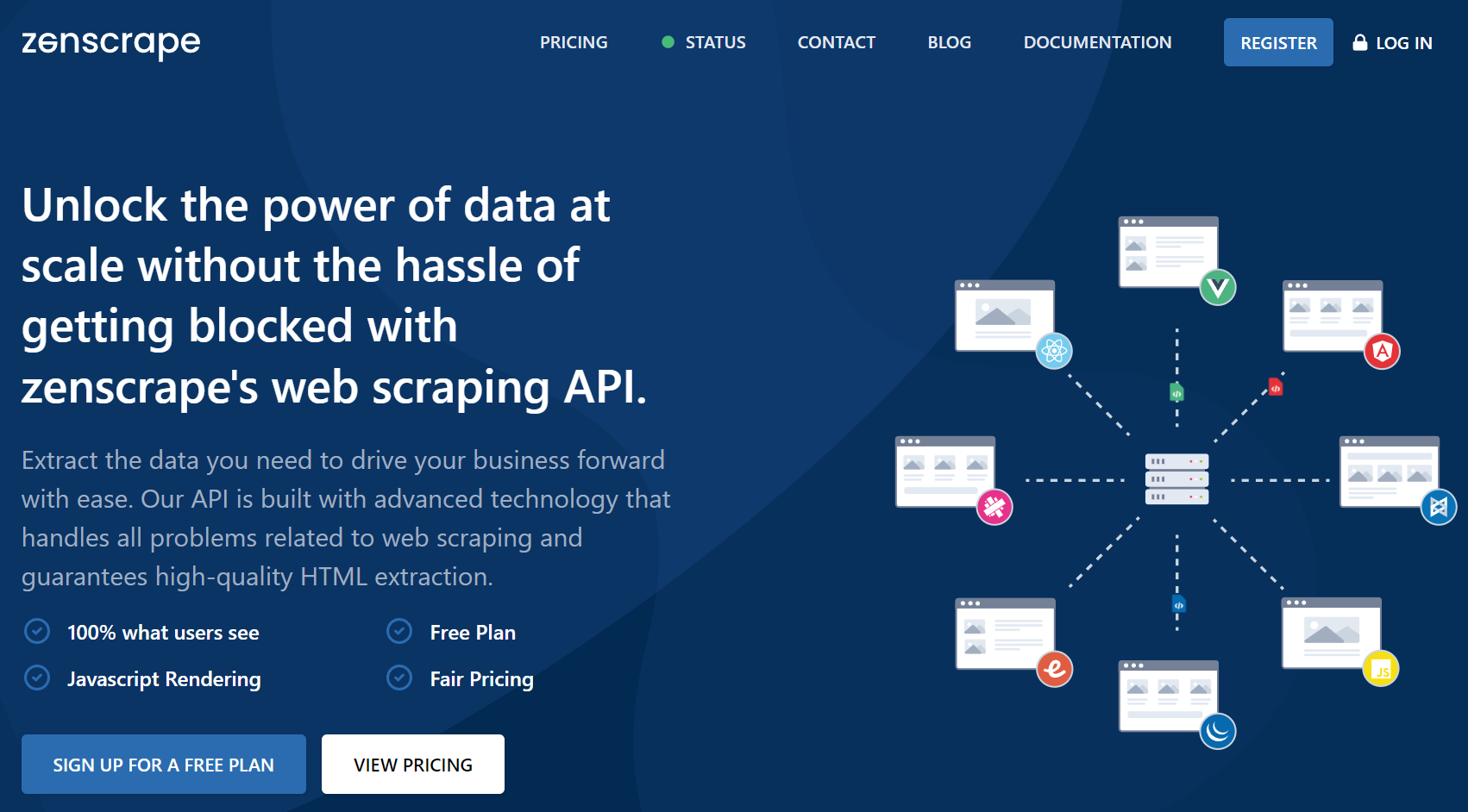Developing technology has increased the data needs of businesses. As a solution to this increasing data need, many businesses have brought different solutions. Many of these solutions are costly and unsustainable. On the contrary, web scraping API, which is the product of developing technology, is the biggest advantage of businesses in web scraping processes today. Web scraping APIs use proxy for scraping so businesses have uninterrupted and continuous access to data.
APIs that use scraping for proxy prevent blocking and stalling of web scraping processes. For example, rotating proxies prevent IP addresses from being blocked, which is today’s most popular web scraping problem. So how does a proxy prevent IP blocking?
How Do Rotating Proxies Prevent IP Addresses from Being Blocked?
Rotating proxies provided by any proxy provider is a method used to prevent IP addresses from being blocked in web scraping processes. With this method, the web scraping application uses different IP addresses when making a request to the target website via a rotating proxy.
Which Proxy Types Can Usable for Web Scraping?
The types of proxies to be used in web scraping processes may vary according to the needs of the application and target websites. We will review the three most popular proxy types used for web scraping today.
Rotating Proxies
Rotating proxies are a type of proxy that automatically changes users’ IP addresses as they enter target websites. It usually has multiple IP addresses in its pool and periodically changes the user’s IP address with these IP addresses. In this way, they prevent this user from being detected and blocked by target websites.
Residential Proxies
Residential proxies are a type of proxy that assigns IP addresses to the user by obtaining them from real home or office internet service providers. This is why it ensures that bots like web scraping automation are perceived by target websites as normal human beings. These proxies are used for web scraping, data mining, and many more internet-based operations.
Dedicated Proxies
Dedicated proxies are proxies specific to users and used by only one user. So the biggest advantage of these proxies is security. Other advantages are speed, high bandwidth, and removing the risk of IP addresses being blocked.
Zenscrape API: Web Scraping API with Proxy Servers
We mentioned earlier that web scraping APIs are the most popular way to extract data from the internet today. The web scraping API that it specializes in web scraping and is used by major brands is the Zenscrape API.
This API has a proxy pool with millions of IP addresses. In this way, users do not experience any pauses in their web scraping processes. It directly eliminates the risk of IP blocking. Additionally, this API also offers location-based web scraping. Users can easily scrape location-specific content.
Finally, this API provides users with a highly accurate data scraping experience. It uses JavaScript rendering to keep data accuracy high. Users scrape the data they see on their websites.
Conclusion
As a result, the use of proxies in web scraping processes makes it easy for businesses to acquire data. Manually setting and selecting proxy settings is often costly and error-prone. Therefore, it is more advantageous for businesses to use conventional web scraping APIs. These APIs help businesses with speed, efficiency, security, and continuity.
Scrape the target website with proxy services, and obtain web data with a seamless connection.
FAQs
Q: What does a Proxy for Scraping Provide?
A: In web scraping, it is possible for target websites to detect and block the IP addresses of web scraping applications. A proxy server prevents target websites from detecting these IP addresses. Proxy servers, ie proxy providers, are intermediate servers that allow applications to access the Internet. These servers receive requests made to a website and send them to the target website with different IP addresses.
Q: What is the Difference Between Residential Proxies and Datacenter Proxies?
A: A residential proxy and a data center proxy are two popular types of proxy used in a web scraping project. The main difference between the two proxies is the source of their IP addresses. Residential proxies often have real IP addresses used in homes. In contrast, data center proxies have IP addresses provided by a third-party organization.
Q: Does the Zenscrape API Prevent IP Addresses From Being Blocked?
A: Yes, it does. Zencrape API offers its users a seamless web scraping process with the help of a proxy pool. Users using Zenscrape get a fast and automated scraping experience with the help of free proxy servers.
Q: What are Mobile Proxies?
A: Mobile proxies are a type of proxy that assigns users’ web scraping applications IP addresses associated with mobile devices such as mobile devices or tablets.


